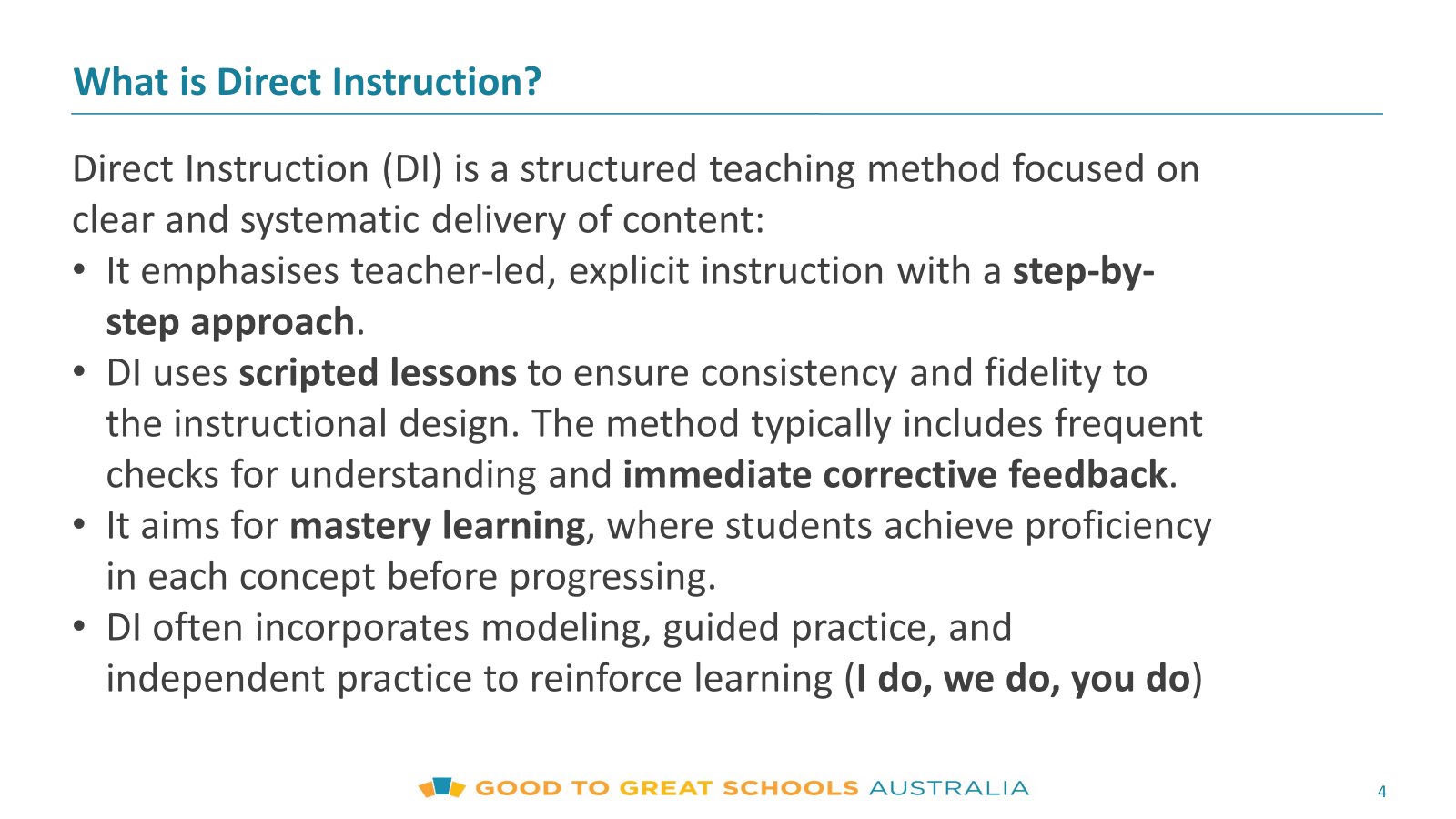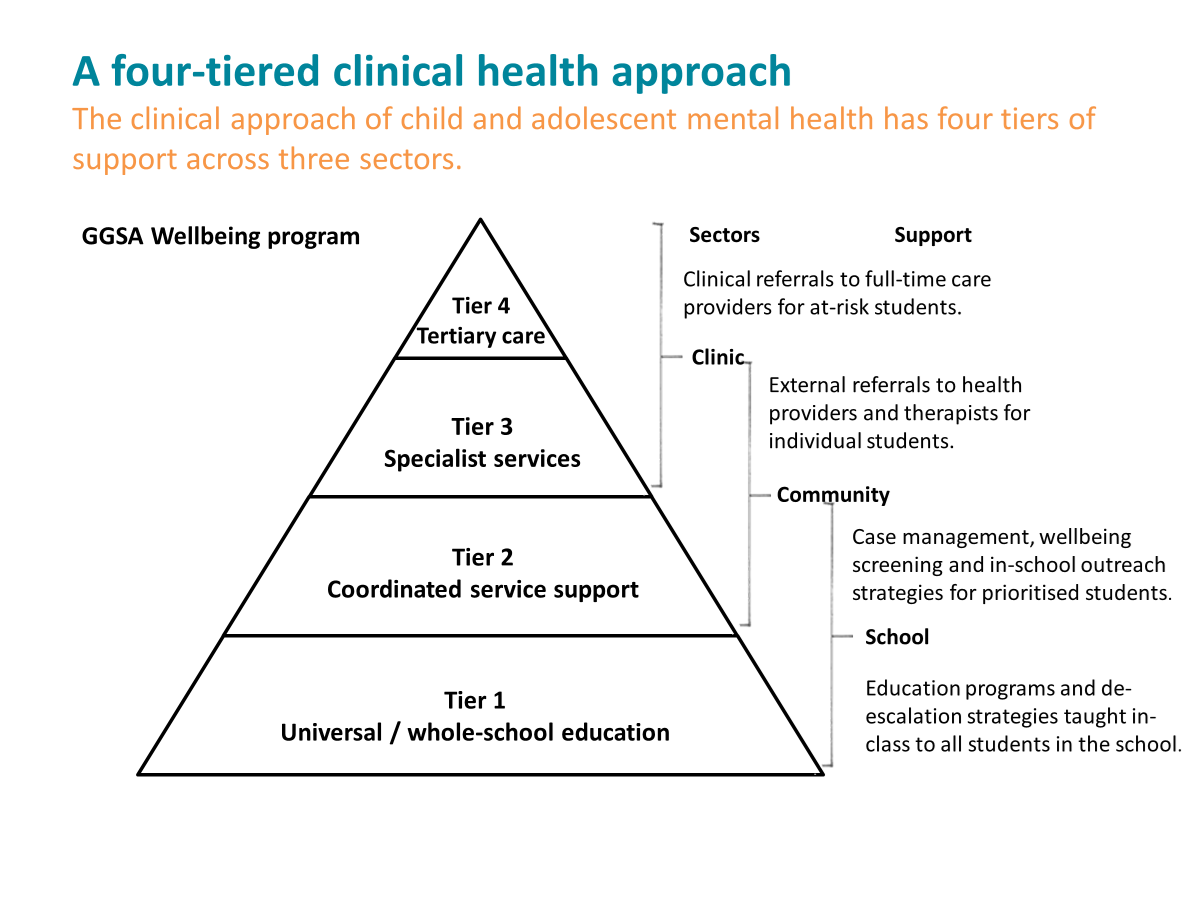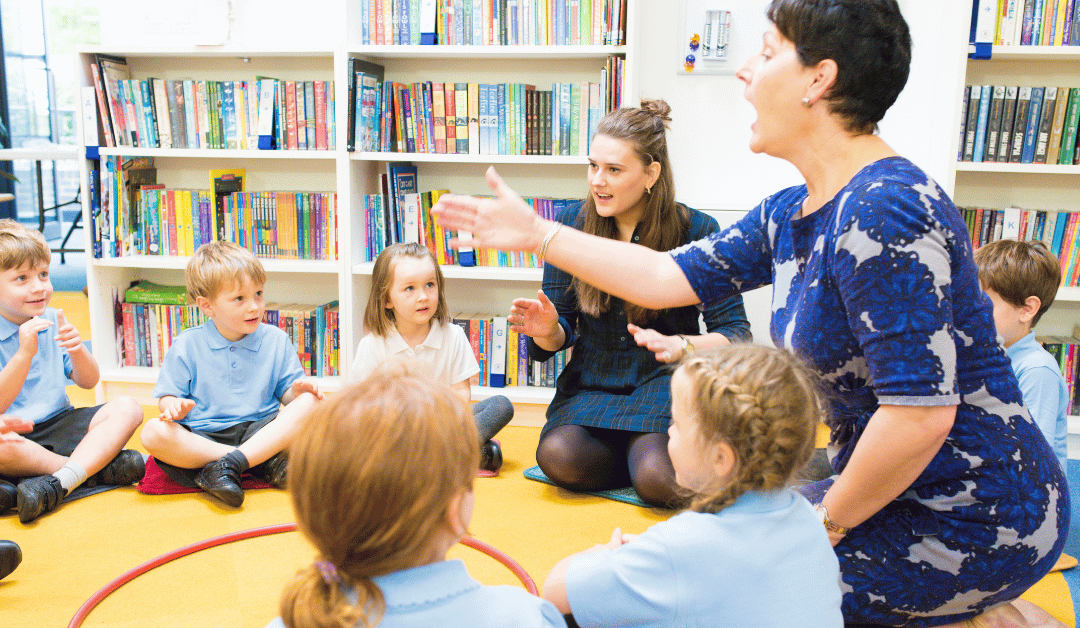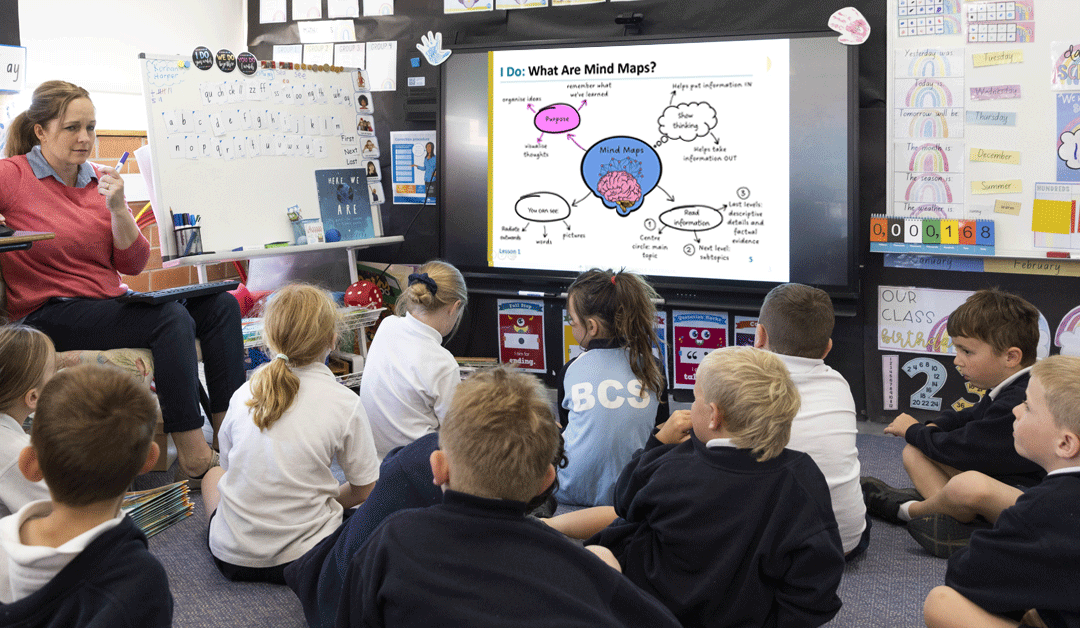The Australian Association for Behaviour Analysis conference brings together experts and professionals dedicated to the science of behaviour analysis.
Good to Great Schools Australia showcased the success of its remote school model at the 9th Annual Conference in Melbourne last Saturday.
For over a decade, the team at Good to Great Schools Australia has been at the forefront of research, design and implementation of innovative educational, direct and explicit instruction curriculum programs.
Our groundbreaking wellbeing program was proudly presented at the conference. The program focuses on meeting the academic and social-emotional health needs of every student. The goal is to respond to the needs of every student so they can thrive academically and developmentally.
In this article, we will take you through the highlights of our presentation, share insights into the research that informs our work, and delve into the transformative impact of the Cape York Aboriginal Australian Academy.
What is the Association of Behaviour Analysis Annual Conference?
The Association for Behaviour Analysis Annual Conference is Australia’s leading event for behaviour analysis, drawing professionals from across Australia.
This event showcases the science of behaviour analysis, its wide application and its relevance in Australia and across the globe. The conference brings together those with an interest in behaviour analysis to share insights, breakthroughs and visionary ideas.
Good to Great Schools Australia was thrilled to be invited to present and share our journey with the Academy, particularly the use of Direct Instruction to meet the requirements of students with special needs.
Groundbreaking Research into Special Needs at Cape York Aboriginal Australian Academy (Dr Jeff Nelson)
Dr Jeff Nelson is a clinical psychologist with a doctorate focusing on brain functioning and assessment of irregular behaviour. He kicked off Good to Great Schools Australia’s presentation with an overview of the comprehensive psychometric assessment program he and Dr Corinne Reid undertook in 2014 and 2015.
In that program, more than 80 per cent of students across three discreet schools either completed subtests from the second edition of the Differential Abilities Scales (DAS-II) or the Developmental Neuropsychological Assessment (NEPSY) and/or had rating scales focusing on their social and emotional maturity, school behaviour and overall wellbeing. Information was also provided by teachers, support staff, parents and carers. The data collected formed the basis of individual student profiles and campus-level summaries, allowing comparison, information sharing and planning.
Dr Nelson provided a detailed analysis of the various types of data, conclusions and discussion points and summarised the recommendations to improve student outcomes, upskill teachers and support staff and modify community attitudes to education and achievement.
The results showed that students’ level of cognitive, social and emotional development was, on average, two to two-and-a-half years delayed, with deficits in regulating emotion and behaviour, performing goal-directed behaviour and generalising across contexts.
He concluded that internalising and externalising problems arising from social and emotional impairment had impacted students’ learning, halved their academic ability and led to disengaged behaviours in the classroom.

Dr Nelson emphasised that direct instruction was the best pedagogical response to support these students and to maximise their learning ability. GGSA had already introduced both the Direct Instruction program and GGSA’s own explicit and direct instruction curriculum into these schools five years earlier, so this bolstered the schools’ confidence that they were on the right track in supporting their students’ needs.
Dr Nelson recommended that GGSA also introduce a social and emotional evidence-based program called Promoting Alternative Thinking Strategies (PATHS) for Prep through to Year 5, which GGSA immediately introduced. This program was developed by an experienced team of clinical psychologists and child development professionals.
Implementing Direct Instruction for Disadvantaged Students (Ben Foran)
Ben Foran is the principal of Coen Campus of Cape York Aboriginal Australian Academy. He has spent most of his career working in remote Indigenous Australian communities and has over 15 years’ experience with Direct Instruction pedagogies.
Ben’s presentation focused on the origins and mechanics of Direct Instruction, explaining it was initiated in the 1960s by educational theorist Siegfried Engelmann. It is a rigorous, teacher-led framework aimed at systematic content delivery. The Direct Instruction approach is characterised by its explicit instruction model, where lessons are delivered step-by-step, adhering closely to scripted lessons to maintain consistency across teaching practices.

Ben outlined that Good to Great Schools Australia initiated the CYAAA program in 2009 to close the achievement gap in Australia’s remote Cape York Peninsula. Direct Instruction (DI) was the backbone of the school curriculum, with DI programs used for literacy and numeracy with other curriculum areas using GGSA development direct instruction curriculum resources. Ben praised direct and explicit instruction as the most effective pedagogy he has worked with.
While DI is suitable for all schools, its success is more striking in schools where consistency of practice has been middling to non-existent. This is often the case in remote, majority-Indigenous schools. Ben said that DI is data-centric, without the process of collecting data being onerous or sitting outside of core business – effective data collection, analysis and application are key.
He also explained how at CYAAA, academic performance data is the ultimate measure of success, and he shared some very positive growth data in reading and maths results at CYAAA from 2020 to 2024. He also explained how strong academic results correlated with other positive improvements in attendance and behaviour incidences. Ben concluded that several factors are crucial for implementation success, such as staff buy-in, recognition and celebration of successes, ongoing coaching and critical self-reflection.
Designing and Implementing a Wellbeing Program at Cape York Aboriginal Australian Academy (Kristy-Anne Johnston)
Kristy-Anne Johnston is Good to Great Schools Australia’s Head of Wellbeing. She has over ten years’ experience in Special Education, a Master of Special Education and spent three years as a teacher and instruction coach at CYAAA from 2014 to 2016. Kristy-Anne’s presentation focused on Good to Great Schools Australia’s Wellbeing Program, delivered to all CYAAA students to ensure their needs are met and that they achieve their full potential. She explained how family and service provider involvement is crucial to the program, and a four-tiered clinical health approach is used.

Kristy-Anne continued by providing an overview of the wellbeing framework that supports the holistic care of each child. It has resulted in significant changes for the children participating in the program.
Good to Great Schools Australia’s Resources to Support the Delivery of Direct Instruction for Special Education
Our special education resources support schools using Direct Instruction programs to assist students with special needs.
Deliver Special Education with Direct Instruction is a professional learning module tailored for educators and teaching assistants looking to enhance their expertise in supporting students with disabilities through direct instructional methods.
Participants will gain a comprehensive understanding of disabilities overview, and testing and inclusion practices within the Australian educational landscape. This module provides an in-depth exploration of special education frameworks, teaching tiers and the practical application of direct instruction strategies.
Educators will learn about how schools support students with disabilities, including individualised planning, adjustments, support team formation and data-driven approaches.
The module also delineates the stakeholders’ roles in the support process, introduces relevant forms and templates and outlines key processes and stages. Through matrices, participants will be equipped to identify, assess and support students with disabilities effectively. These matrices include the Learning Goals Matrix, Adjustments Matrix, Instructional Strategies Matrix and Modifications Matrix, each providing guidance on tailored interventions and adjustments based on individual student needs.
Upon completing this module, educators will possess essential resources and strategies to confidently deliver special education with direct instruction, fostering inclusive and supportive learning environments for students with disabilities.
Practice Direct Instruction for Special Education is a practice module based on the systematic process of implementing Direct Instruction techniques tailored for special education settings. Participants explore the intricacies of each stage: Identify, Adjust, Teach and Review. This includes understanding how to effectively identify individual learning needs, tailor instruction accordingly, deliver content with precision and consistently review progress. This module emphasises the importance of methodical execution in special education contexts, addressing potential challenges and offering strategies for seamless implementation.
Practice Using the Special Education Matrices is a practice module based on matrix-based planning, including assessment, goal-setting, intervention selection and progress monitoring. It highlights the significance of Individualised Plans in special education and equips educators with the skills and strategies necessary to navigate the complexities of matrix-based planning. This ensures targeted support and optimal outcomes for students with diverse learning needs.
Delivering Special Education with Direct Instruction is an implementation guide to support schools to deliver DI to effectively support students with special needs.
Supporting Your Child’s Learning Needs is a guide to support families of children with special needs.
Learn more about our special education resources here.
Learn more about our resources to support the delivery of Direct Instruction and our own direct and explicit instruction learning programs here.
The Transformative Power of School-Based Wellbeing Programs
Good to Great Schools Australia’s participation at the 9th Annual Conference of the Australian Association for Behaviour Analysis has underscored our ongoing commitment to redefining special education through evidence-based approaches like Direct Instruction and innovative wellbeing programs.
The Cape York Aboriginal Australian Academy stands as a testament to the transformative power of these methodologies in meeting the academic and social-emotional needs of students, particularly in remote Indigenous communities. Our presentation highlighted groundbreaking research, demonstrated significant improvements in academic performance and showcased comprehensive resources designed to empower educators and families.
As we continue to refine and expand our initiatives, we remain dedicated to creating inclusive, supportive learning environments where every student can achieve their full potential.



